

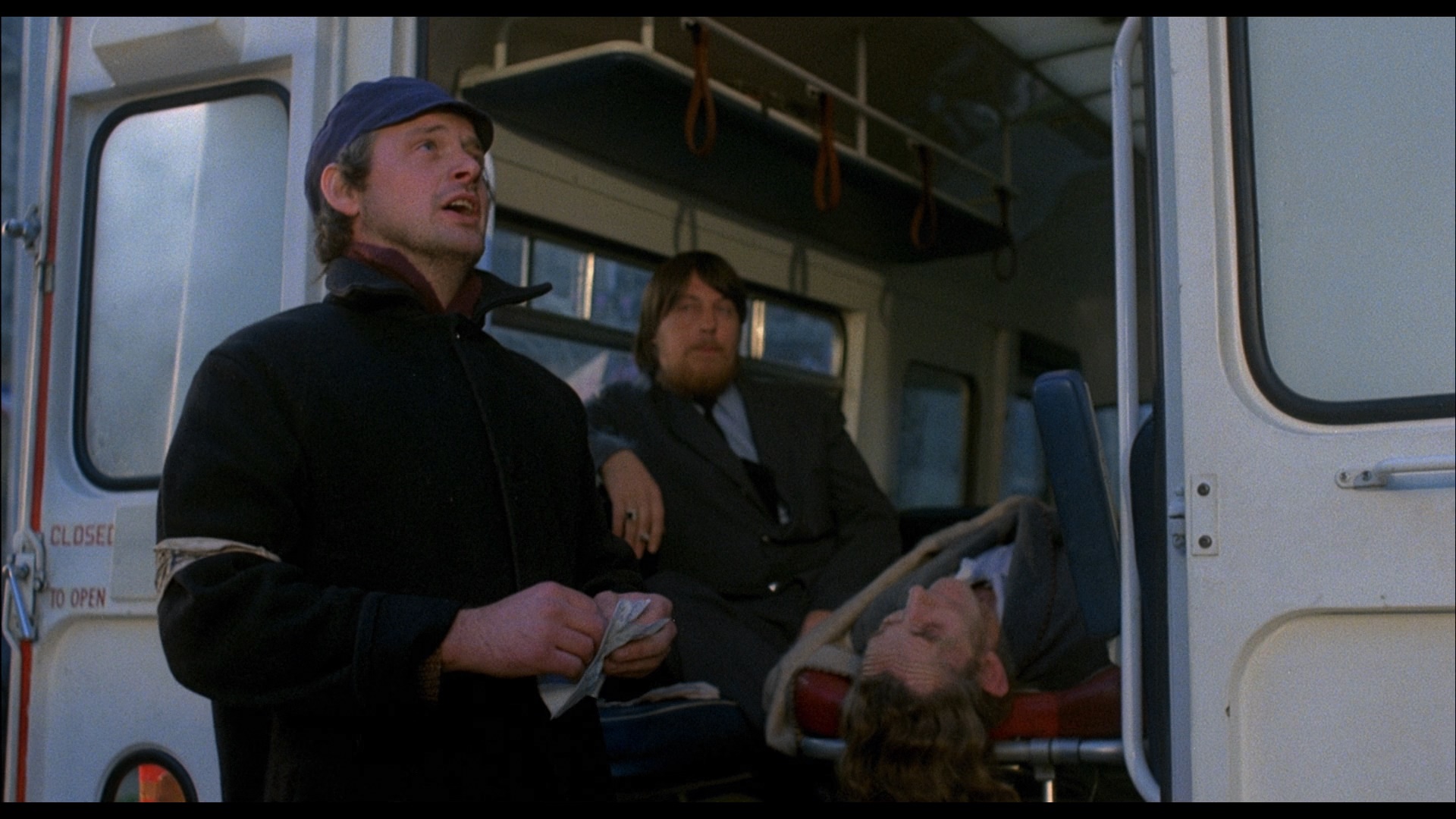 hardly the most
hardly the most 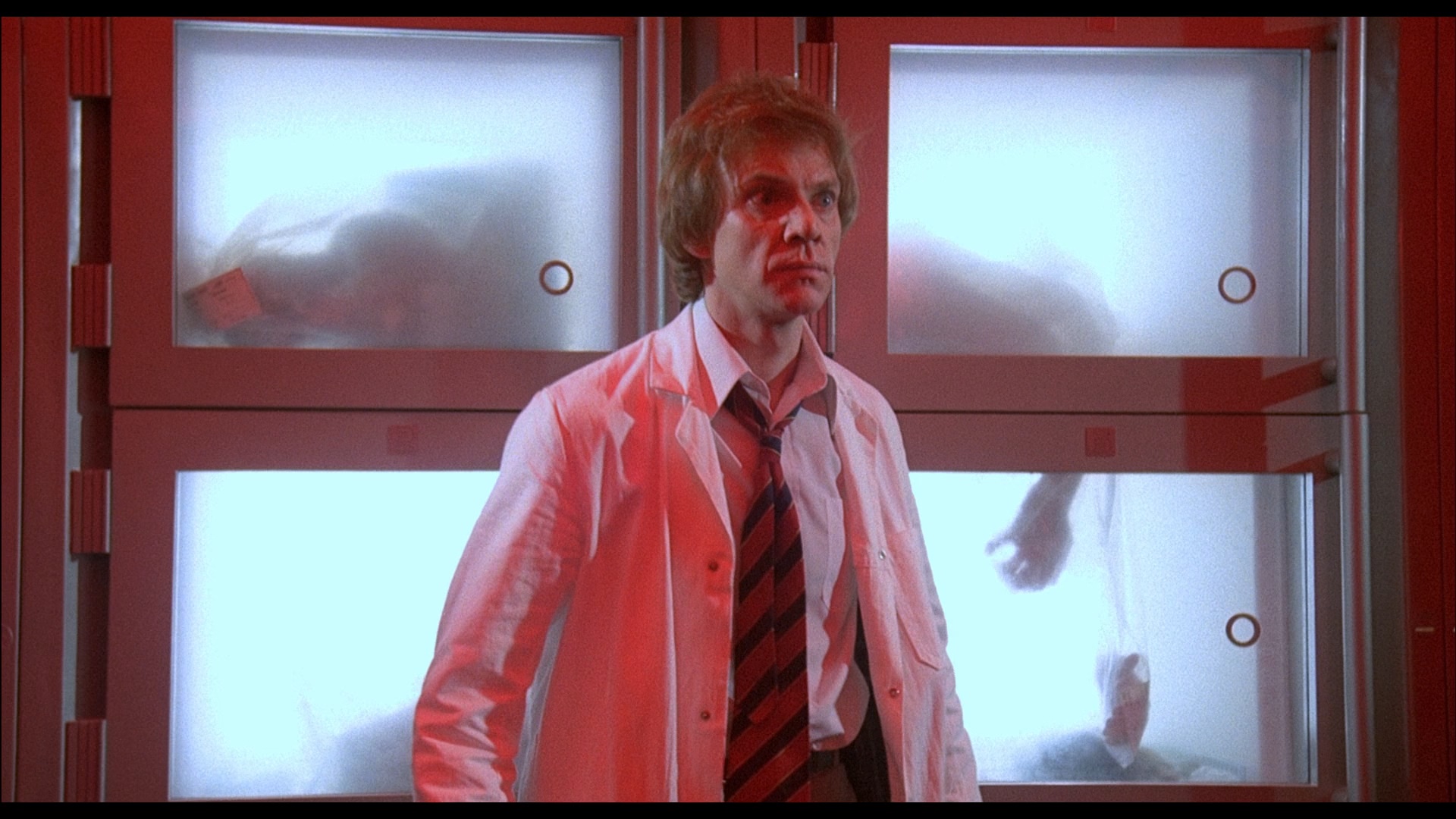 prolific of the British directors who revolutionized local cinema in the 1960s, Lindsay Anderson had as seismic an impact as any of them with his instant classics like 1963's This Sporting Life and 1968's If..., the latter a star-making vehicle for Malcolm McDowell as the young antihero Mick Travis. Both Anderson and McDowell would team up again in 1973 for a mammoth three-hour sequel, the picaresque comedy O Lucky Man!, with plans set in motion for a third adventure through 20th Century Fox. The process ended up taking nine years to reach the screen with the third and final film, Britannia Hospital, which ended up in the hands of EMI and received such a volatile reaction that it essentially torched Anderson's homegrown career, sending him off to the U.S. to direct titles like The Whales of August. A scalding satire in the vein of The Hospital and The National Health, Anderson's film ups the ante by spotlighting a massive cast of characters and veering the dark comedy into outlandish sci-fi and horror territory in the second half.
prolific of the British directors who revolutionized local cinema in the 1960s, Lindsay Anderson had as seismic an impact as any of them with his instant classics like 1963's This Sporting Life and 1968's If..., the latter a star-making vehicle for Malcolm McDowell as the young antihero Mick Travis. Both Anderson and McDowell would team up again in 1973 for a mammoth three-hour sequel, the picaresque comedy O Lucky Man!, with plans set in motion for a third adventure through 20th Century Fox. The process ended up taking nine years to reach the screen with the third and final film, Britannia Hospital, which ended up in the hands of EMI and received such a volatile reaction that it essentially torched Anderson's homegrown career, sending him off to the U.S. to direct titles like The Whales of August. A scalding satire in the vein of The Hospital and The National Health, Anderson's film ups the ante by spotlighting a massive cast of characters and veering the dark comedy into outlandish sci-fi and horror territory in the second half. 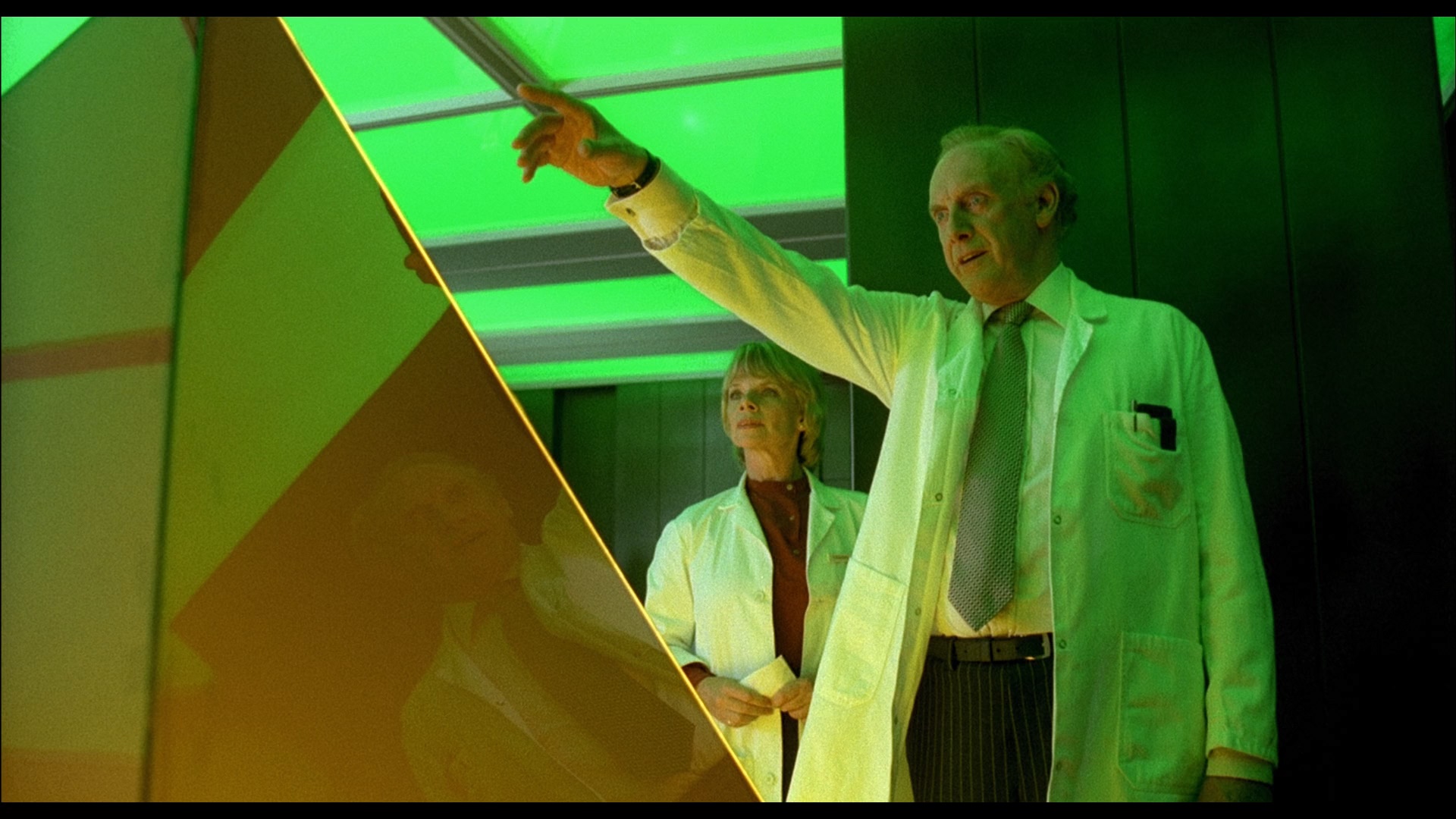 within the premises. In fact, Professor Millar (Crowden) and his cohort, Dr. MacMillan (Bennett), are engaged in some truly mad handiwork indeed involving body parts and a project called Genesis that marks a progression beyond current humankind. Meanwhile protesters are congregating outside
within the premises. In fact, Professor Millar (Crowden) and his cohort, Dr. MacMillan (Bennett), are engaged in some truly mad handiwork indeed involving body parts and a project called Genesis that marks a progression beyond current humankind. Meanwhile protesters are congregating outside 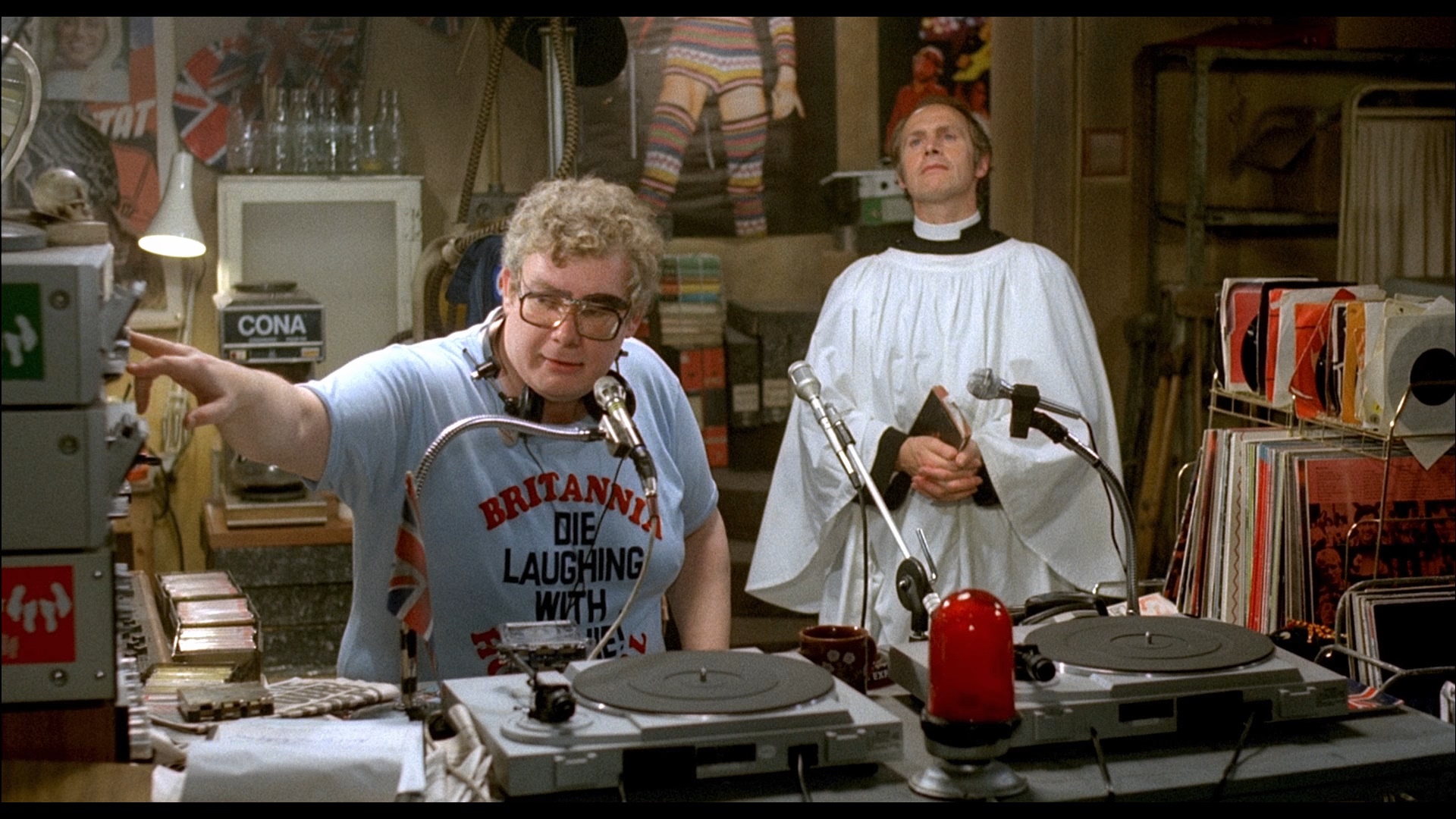 against a ruthless African dictator being treated inside the hospital, the staff is organizing a strike, and society itself seems on the verge of total collapse.
against a ruthless African dictator being treated inside the hospital, the staff is organizing a strike, and society itself seems on the verge of total collapse. 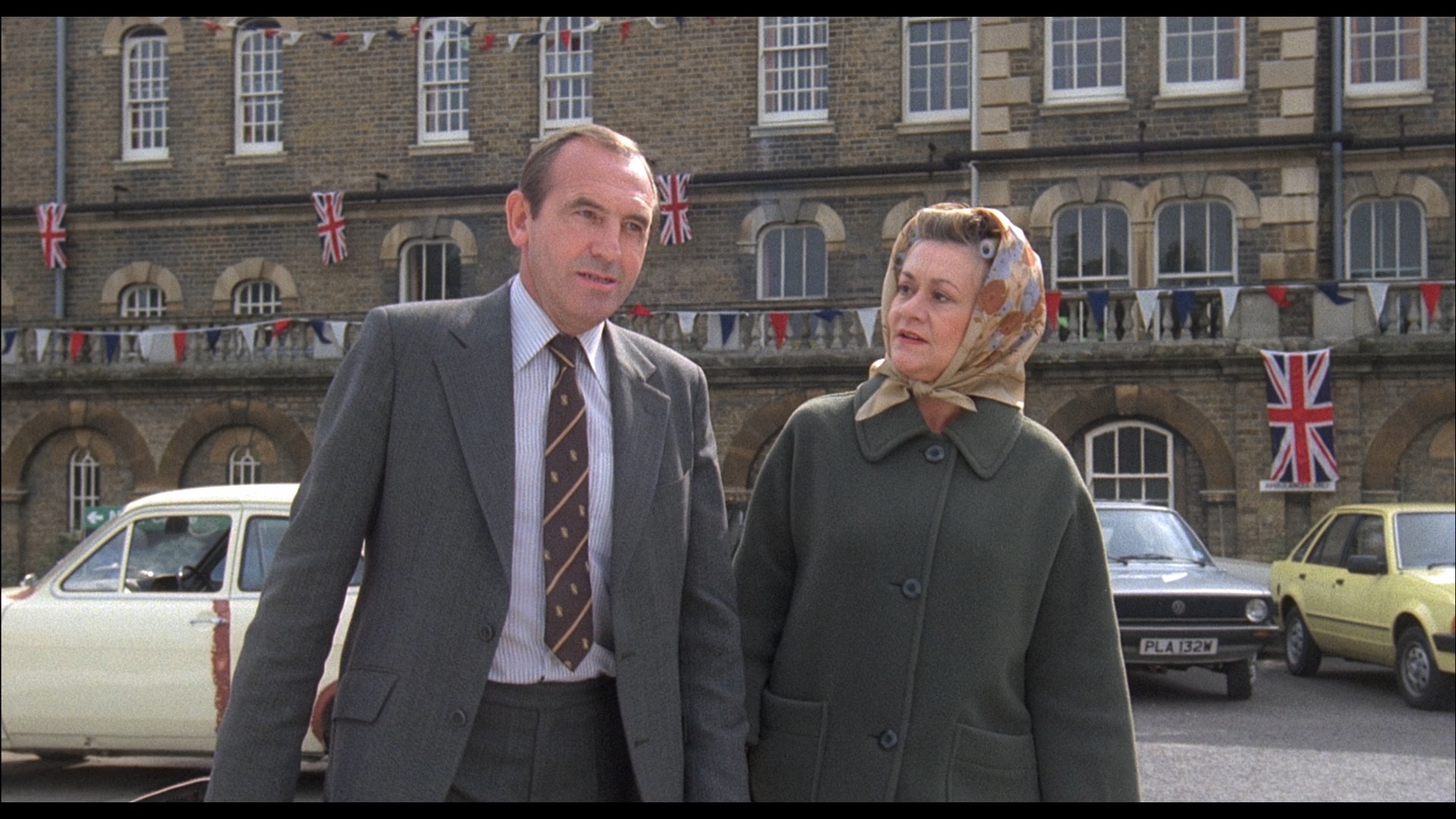 theatrical release in the U.S. by United Artists Classics on the heels of a brief U.K. theatrical run, Britannia Hospital was reportedly trimmed by up to five minutes in some engagements but has remained intact on home video in all of its major incarnations including an American VHS from HBO. The DVD
theatrical release in the U.S. by United Artists Classics on the heels of a brief U.K. theatrical run, Britannia Hospital was reportedly trimmed by up to five minutes in some engagements but has remained intact on home video in all of its major incarnations including an American VHS from HBO. The DVD 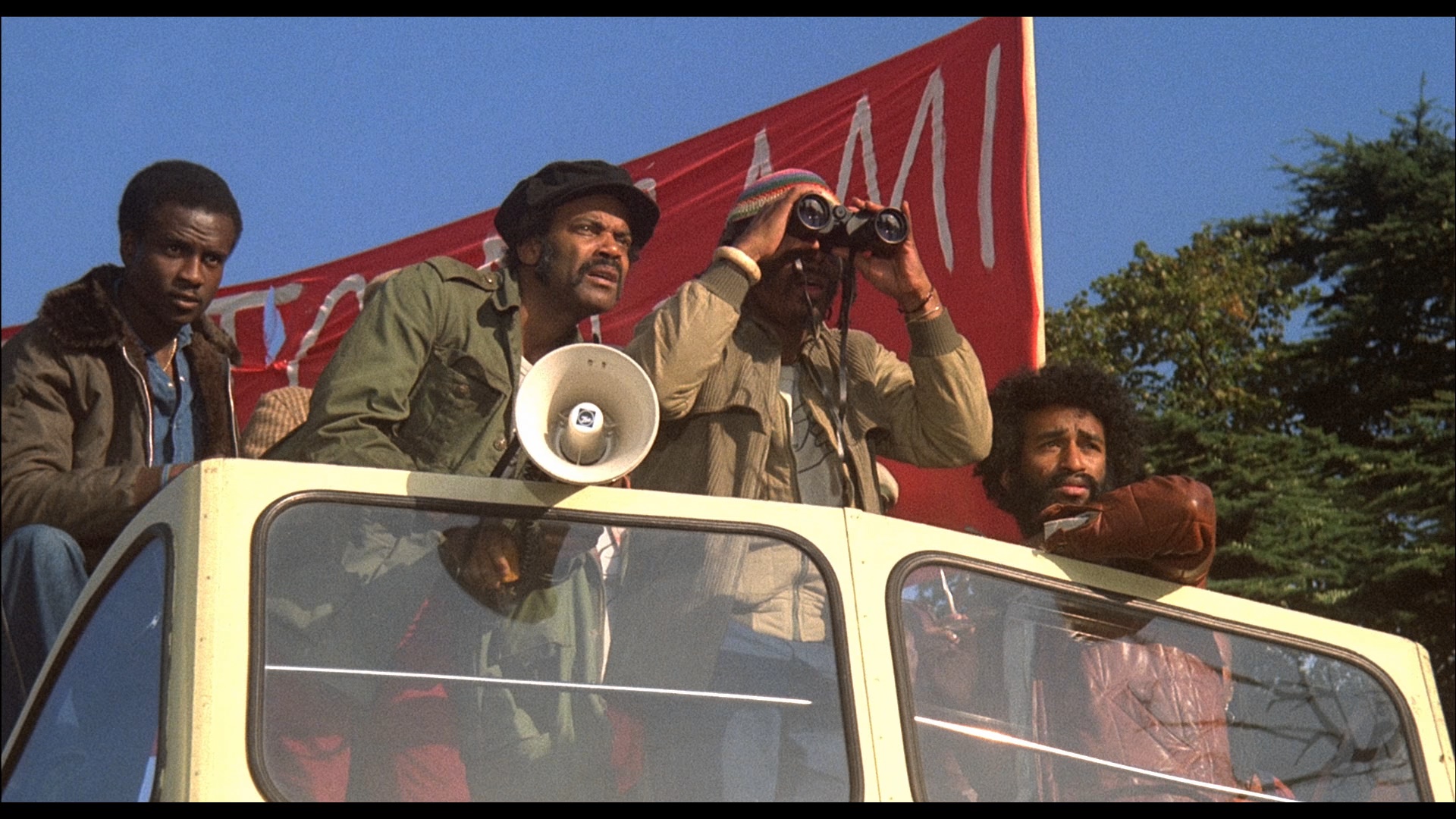 from Anchor Bay in 2001 featured a solid anamorphic transfer, a trailer, and a typically entertaining interview with McDowell about his Anderson collaborations. The British DVD only featured a trailer, but that oversight was remedied in 2020 when Indicator gave the film its worldwide Blu-ray premiere in a limited 3,000-unit edition featuring an insert booklet with the usual extensive material including new liner notes by Peter Cowie, an archival Anderson interview, production diary excerpts from Anderson and screenwriter David Sherwin, and sample critical reactions. The HD master supplied by Studio Canal looks excellent with no significant issues; colors are bright and punchy, detail is excellent, and film grain appears to have been left intact. The LPCM English mono track is also in great shape and features new, improved English SDH subtitles. Not surprisingly, Anderson gets the lion's share of the focus for the extras starting off with an audio recording (which plays over the course of the entire film when selected) featuring Anderson's 1991 British Entertainment History Project in discussion with Alan Lawson and Norman Swallow. Given that this was recorded two years before Anderson's death, it's a truly career-spanning chat with lots of stories about the industry including rubbing shoulders
from Anchor Bay in 2001 featured a solid anamorphic transfer, a trailer, and a typically entertaining interview with McDowell about his Anderson collaborations. The British DVD only featured a trailer, but that oversight was remedied in 2020 when Indicator gave the film its worldwide Blu-ray premiere in a limited 3,000-unit edition featuring an insert booklet with the usual extensive material including new liner notes by Peter Cowie, an archival Anderson interview, production diary excerpts from Anderson and screenwriter David Sherwin, and sample critical reactions. The HD master supplied by Studio Canal looks excellent with no significant issues; colors are bright and punchy, detail is excellent, and film grain appears to have been left intact. The LPCM English mono track is also in great shape and features new, improved English SDH subtitles. Not surprisingly, Anderson gets the lion's share of the focus for the extras starting off with an audio recording (which plays over the course of the entire film when selected) featuring Anderson's 1991 British Entertainment History Project in discussion with Alan Lawson and Norman Swallow. Given that this was recorded two years before Anderson's death, it's a truly career-spanning chat with lots of stories about the industry including rubbing shoulders 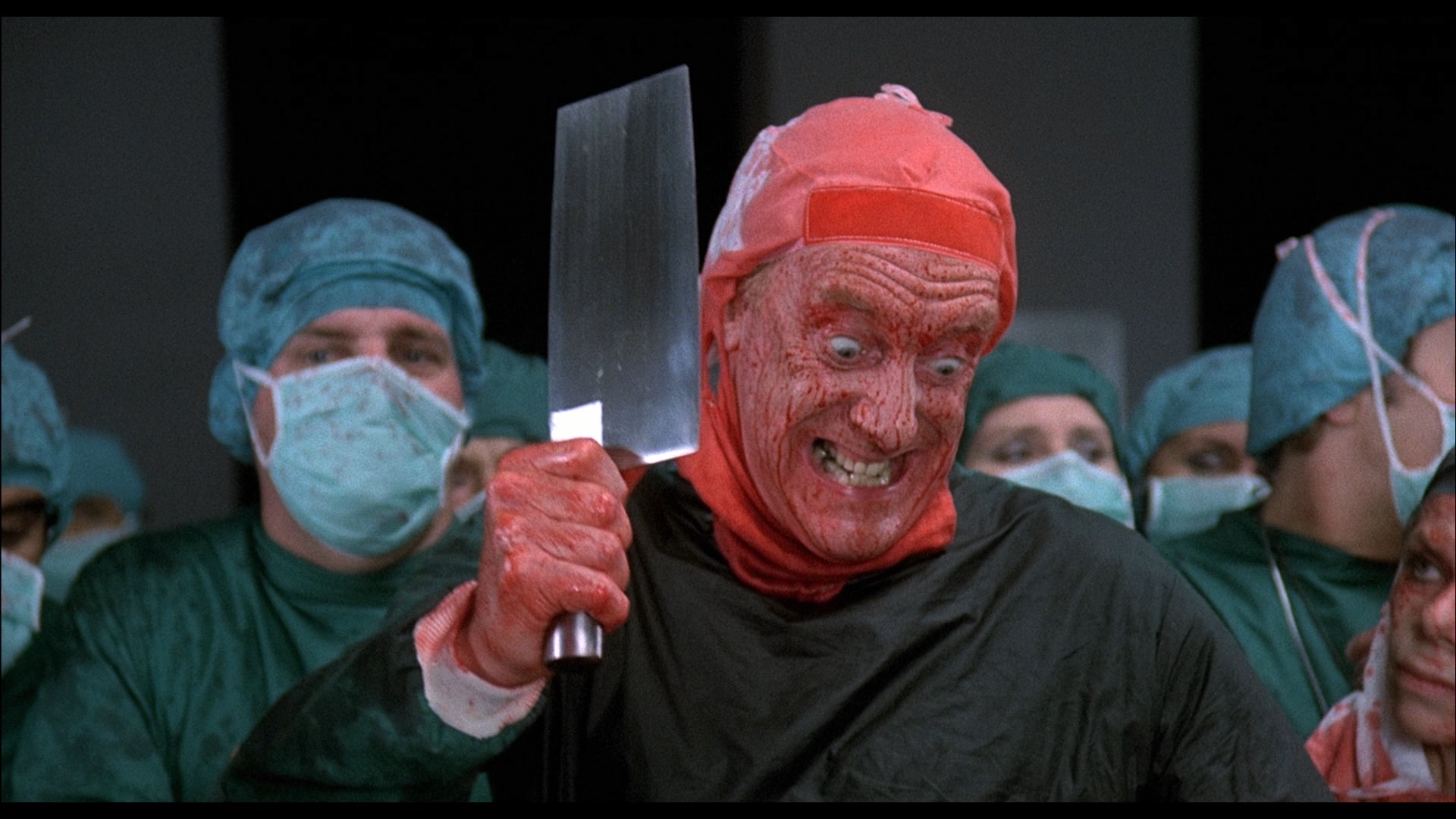 with the likes of Carol Reed and Bryan Forbes, as well as the changing conditions of theatrical distribution and exhibition in Great Britain over the
with the likes of Carol Reed and Bryan Forbes, as well as the changing conditions of theatrical distribution and exhibition in Great Britain over the 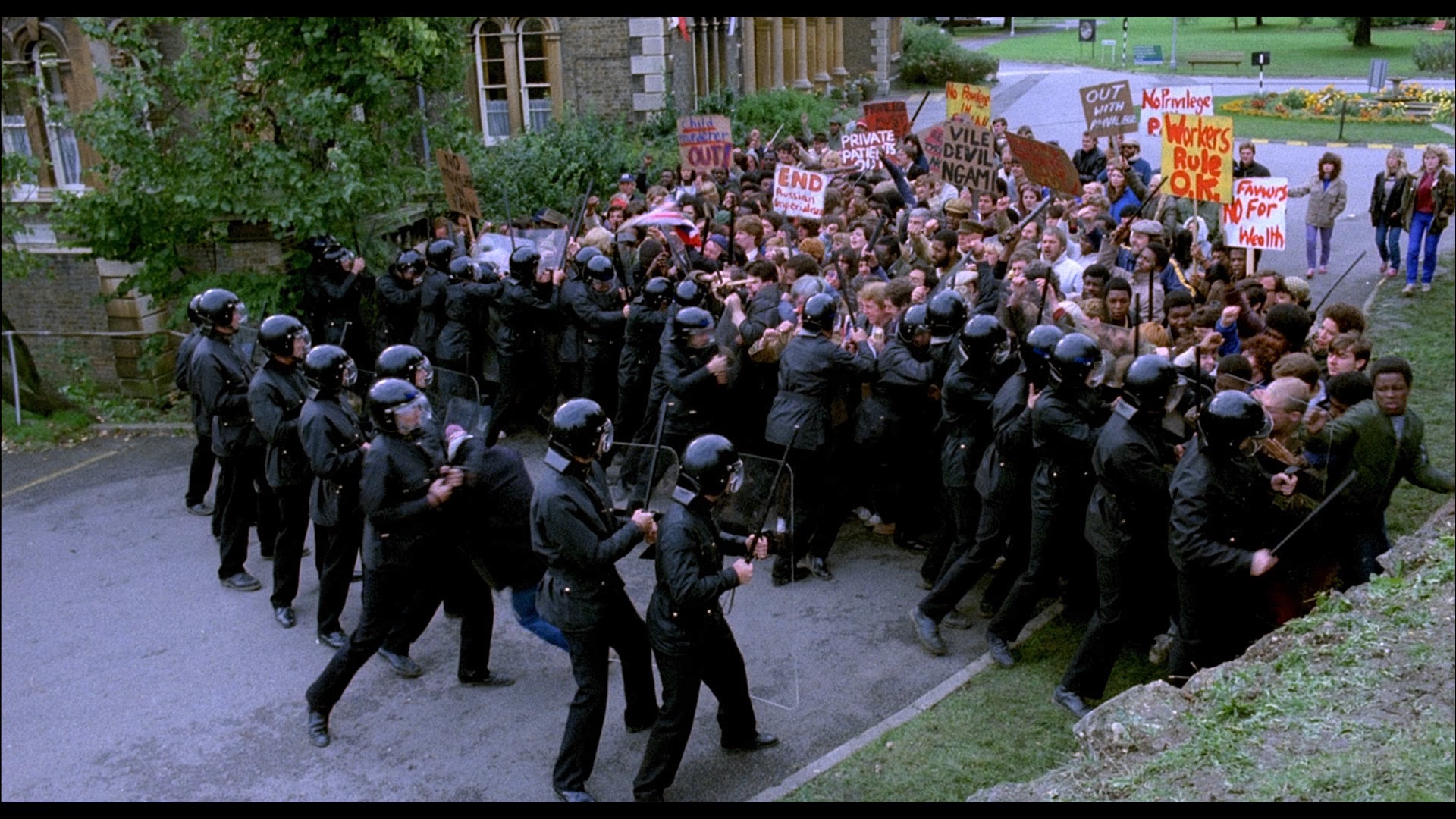 years. In "Healthy Reputation" (20m34s), the always entertaining Askwith (whose autobiography is also great reading) turns up to talk about his long-running friendship with Anderson and the films they made together as well as his tangential acting experience after trying to walk in Laurence Olivier's Shakespearean footsteps and earning a troubled reputation at school. Most interestingly, he talks about watching this film for the first time in ages and deciding that Anderson deliberately decided to "make a failure" that would come back around and be appreciated later on -- which seems to be the case. Then in "Biles Apart" (8m27s), actor Brian Pettifer chats about his first meeting with Anderson his definition of a good director, and the film's rocky reception in the U.K. due in part to the public's attitude during the Falklands War. Finally, "A Cut Above" (11m1s) features editor Michael Ellis covering his work in various capacities on all three films in the Mick Travis trilogy, with this film marking his promotion to editor and the process of cutting the film while it was being shot, with Anderson wanting to "make his mark" on the process as well and the ending deviating a bit from the script. Also included are the theatrical trailer, a teaser, and an image gallery of stills, posters, and other odds and ends.
years. In "Healthy Reputation" (20m34s), the always entertaining Askwith (whose autobiography is also great reading) turns up to talk about his long-running friendship with Anderson and the films they made together as well as his tangential acting experience after trying to walk in Laurence Olivier's Shakespearean footsteps and earning a troubled reputation at school. Most interestingly, he talks about watching this film for the first time in ages and deciding that Anderson deliberately decided to "make a failure" that would come back around and be appreciated later on -- which seems to be the case. Then in "Biles Apart" (8m27s), actor Brian Pettifer chats about his first meeting with Anderson his definition of a good director, and the film's rocky reception in the U.K. due in part to the public's attitude during the Falklands War. Finally, "A Cut Above" (11m1s) features editor Michael Ellis covering his work in various capacities on all three films in the Mick Travis trilogy, with this film marking his promotion to editor and the process of cutting the film while it was being shot, with Anderson wanting to "make his mark" on the process as well and the ending deviating a bit from the script. Also included are the theatrical trailer, a teaser, and an image gallery of stills, posters, and other odds and ends. ![]()